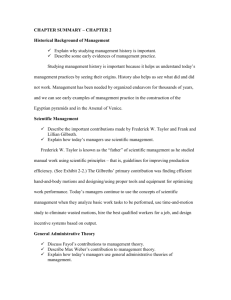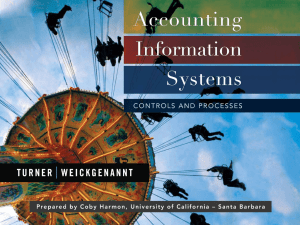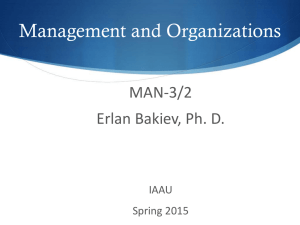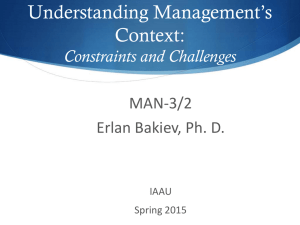LI 2014 BUDGETING Outline - Powerpoint Presentation
advertisement
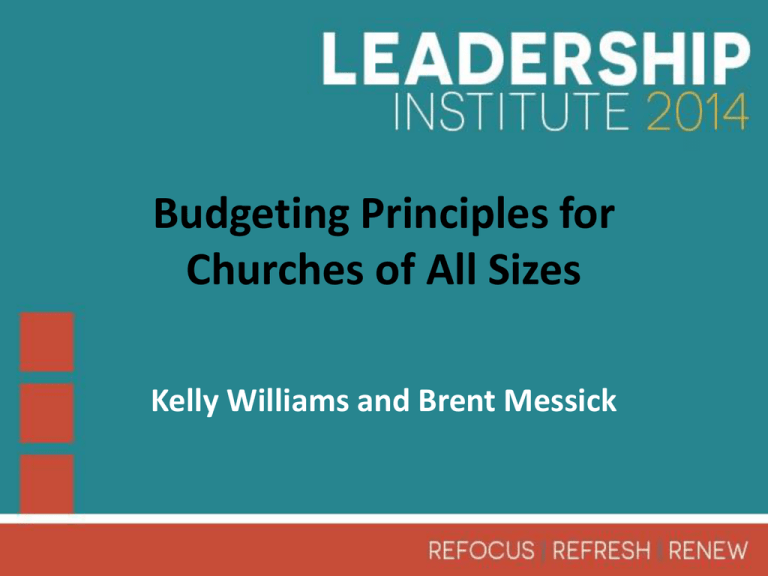
Budgeting Principles for Churches of All Sizes Kelly Williams and Brent Messick Welcome and Introductions Kelly Williams is the Director of Finance & Accounting at Church of the Resurrection. She was hired in 1995 as the church’s first Business Administrator. Kelly is serving on the Investment Committee for the General Council on Finance & Administration, and is the Chair of the Great Plains Conference Board of Pension and Health Benefits. She also has served as Secretary of the United Methodist Association of Church Business Administrators. Kelly is a graduate of Kansas State University and a Certified Public Accountant. kelly.williams@cor.org/913-544-0777 Welcome and Introductions Brent Messick is the Managing Executive Director of Operations and Chief Financial Officer at Church of the Resurrection. He oversees the following ministries: Stewardship and Generosity, Finance & Accounting, Facilities, I.T., Worship and Event Technical Production, Human Resources, Catering & Food Services, and the café and bookstore operations. He currently serves on the Great Plains Conference Committee on Finance and Administration. Previously, Brent has over 25 years of business experience, with his B.A. and M.B.A. brent.messick@cor.org/913-544-0772 2. Budget Philosophy • • • • • • • Budget plan and timetable. Budget targets pre-established. Maintain ministry, grow, dream. Contingency planning. Income-based vs. expense-based. Balanced budget: op receipts = op exps + cap ex. 10% cash reserve. 3. Operating Receipts • • • • Income Worksheet (Exhibit A). Projections from annual Stewardship Campaign. Pledge receipt discount rate. Operating receipts historical trends. – Pledge vs. plate %’s. – Senior pastor summer sabbaticals. – 4-Sunday vs. 5-Sunday months. • • • • • • EFT. Online giving. Other Income. Surplus Reserves. Special offerings. Designated funds. 4. Operating Expenses • Operating Expense Template (Exhibits B1 & B2). – – – – Projected budget guidelines established. Detailed assumptions documented. Box 2 – grow, dream. Box 3 – contingency planning. • Prepared by ministry directors. • Staffing – annualize current year adds, raises, new staff, increases in benefits. • Iterative process – 2 or 3 drafts. – Box 2 prioritization. • On-going monitoring against stewardship pledges. • Building reserves. 5. Consolidated Budget (Exhibit C) • Ministry organization (Exhibit D) 6. Budget Review and Approval Process • • • • • • Bookkeeper, CBA, Treasurer, Financial Secretary. Senior Pastor and Leadership Team. Staff Parish Relations Committee – staffing budget. Finance Committee. Church Council. Church Conference. 7. Role of the Finance Committee • Budget review and approval. • Changes to the budget during the year. • Monthly review – actuals vs. budget. 8. Contingency Planning • Budget Reforecast. – 6 months actual and 6 months forecast. – Similar process as annual budget. – Reforecast becomes new budget. • Box 3. – 10% reductions. 9. Monthly Review • Summary Operating Statement (Exhibit E). – Balance Sheet. • Cash Flow Projection (Exhibit F). • Ministry directors and campus pastors review monthly financial results. – Variances reviewed w/ financial mgmt. – Timing variances. • Finance Committee. • Key financial statistics posted on church website (Exhibit G). 10. Recommendations • Budgeting process for churches of all sizes. • Budgeting techniques in good times and difficult times. 11. Questions and Answers 12. Workshop Evaluations


